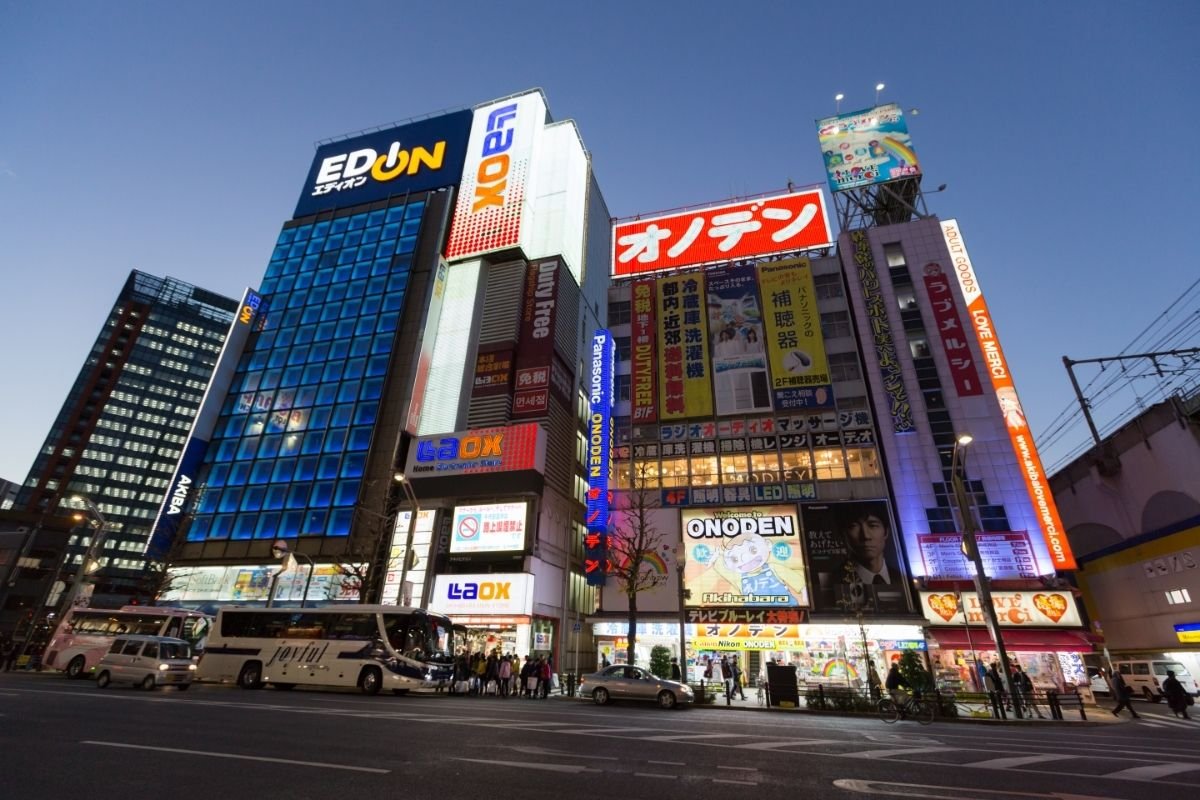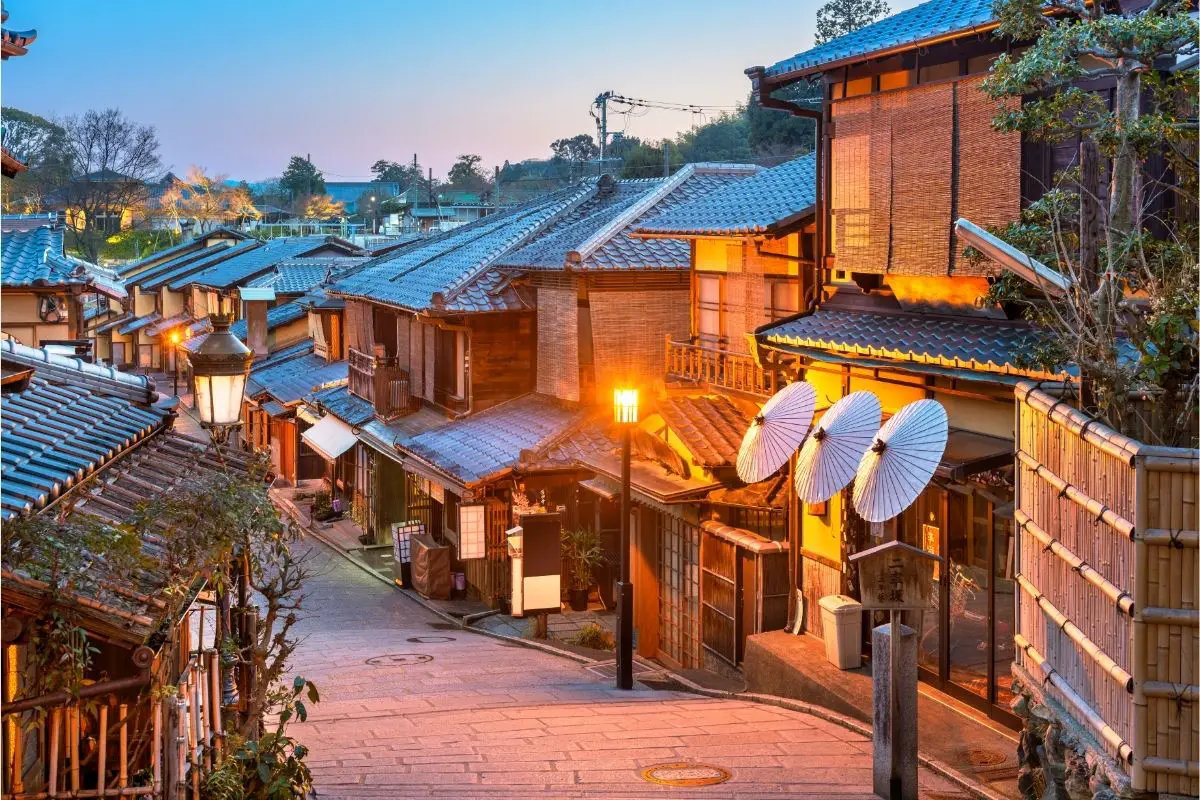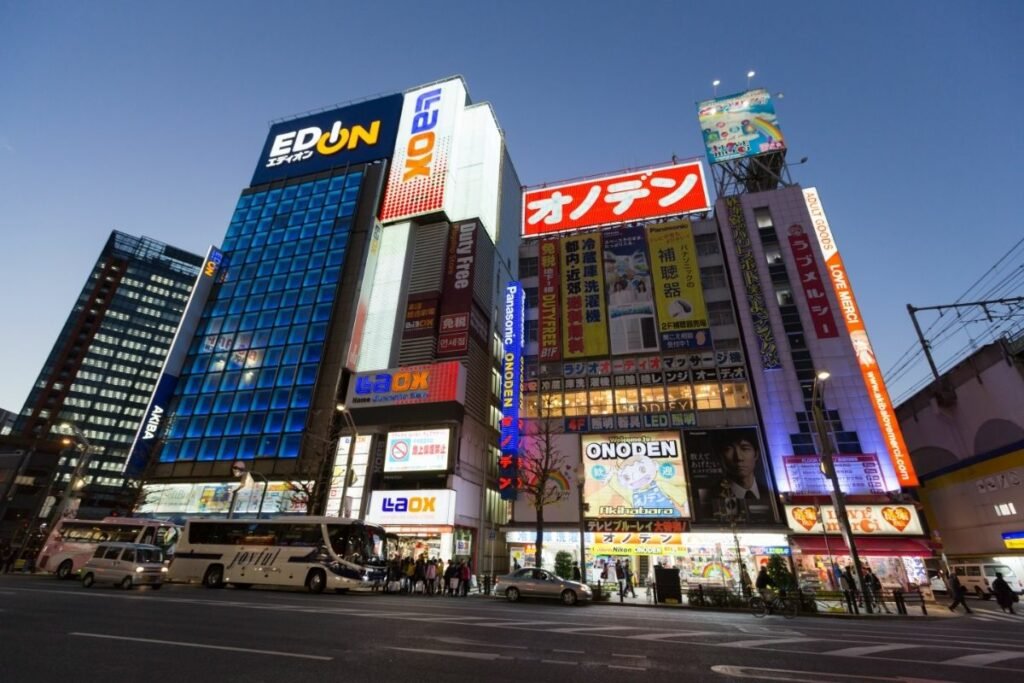Japan is a stunning country that has everything from bustling cities to peaceful villages.
Culture and history fill the streets of Japan and it is a once-in-a-lifetime trip to get to the land of the rising sun.

Japanese culture is hugely different from other Asian countries and other cultures around the world.
The unique culture can seem daunting to visitors to the country but understanding the basics of Japanese etiquette before traveling will help you adjust to the local customs and avoid any awkward situations.
Japanese people are extremely courteous and respect is a huge part of daily life and how the country is governed, meaning there are certain expectations of guests in Japan.
Below we list 13 of the main things that are considered taboo and rude in Japan that you should not do during your time there.
13 Things You Should Not Do In Japan
Pay Attention To The Queuing Systems
Whether it is at a train station or a grocery store, in Japan, people line up in an orderly, single file.
In train stations, there are arrows painted on the platform that explain where you should stand when waiting for a train. When waiting for a train, queues will form and you should not skip in these queues, even if that means having to wait for another train.
This is the same for all modes of public transport.
Do Not Point
Pointing is considered to be extremely rude in Japan. Rather than pointing at something in the distance, wave your hand in the direction you would point in.
Even when pointing to themselves, Japanese people will often either use two hands or simply touch their nose rather than pointing with one finger.
Pointing with a chopstick (see also ‘Why Are They Called Chopsticks?‘) is a definite no-no and when giving or taking something try using both hands to show respect.
Do Not Tip
To serve is seen as a great honor and in Japan, if you leave a tip it is seen as very disrespectful.
In restaurants and taxis, you should have change to pay the exact amount or you should wait for your change, no matter how small an amount it is.
While this may seem pointless, waiting for your change will show great respect to Japanese culture.
Avoid Loud Conversations On Public Transport
Transport is often the one space Japanese people have to relax all day as they are busy working, and so the commute to work and home again is considered sacred.
Out of respect to each other Japanese people are quiet on the train and no phone calls are taken. If you need to speak you should speak quietly but you should avoid phone calls at all costs.
Do Not Blow Your Nose In Public
Blowing your nose in public is considered extremely rude in Japan. If you need to blow your nose, you should go to a bathroom or a private place to look after a running nose.
In the winter Japanese people will often wear face masks, usually, someone with a cold will wear a mask to prevent the spread of germs but on public transport most people may wear a face mask to avoid illness.
Don’t Wear Shoes Indoors
In some traditional hotels, restaurants, Japanese homes, and in public spaces such as shrines and temples you should remove your shoes and change into the house slippers that are provided.
Make sure your feet do not touch the ground outside before stepping on the ground inside.
Shoes that are worn outside the home are considered dirty and so they are removed immediately after stepping through the door.
There are also special toilet slippers in some spaces, you will see this as when you step into the bathroom there will be slippers waiting to be changed into.
The only instance where no slippers are provided will be for spaces that have traditional tatami mats as the slippers may damage the mats.
In this case, you would simply wear your socks (see also ‘What To Wear In Japan‘) and so it is important to keep your feet clean when in Japan.
Be Aware Of Chopstick Etiquette
Like any new country, you will want to immerse yourself in Japanese culture and a huge part of this is trying to eat with chopsticks (see also ‘Do Japanese Use Chopsticks?‘).
When using chopsticks you should never stick your chopsticks in a bowl vertically, pass food to others using chopsticks, and you should never rub your chopsticks together and use the holder rather than placing the chopsticks directly on the table.
Sticking your chopsticks vertically in a bowl represents offering food to the dead in Buddhism. To eat shared meals, take the food you wish to eat and place it on your separate plate before eating.
If you need help on how to hold the chopsticks in some places the staff will be happy to help.
Respect Your Elders
The elderly in Japan are treated with the utmost respect.
Elderly people are given priority on public transport and can skip queues if they see fit. Anything an elderly person does is not questioned.

Open doors for elderly women but not for elderly men as this is seen as a sign of disrespect.
Be Aware Of The Rules That Apply To Onsen Use
Onsens are traditional natural baths in Japan (see also, ‘Best Onsen in Japan‘). If you have any visible tattoos or piercings you may be refused entry as both of these things are associated with crime in Japan and impure.
If you do not have tattoos or piercings and you are planning to use an onsen be aware that some onsens are not for foreigners to use.
If you find an onsen that you can use, make sure that you shower before stepping into the onsen.
Onsen are considered to be pure things and that is why there are so many regulations based around them and who can use them.
Look After Business Cards With Respect
Business cards are considered to be an extension of yourself and if someone mishandles your business card it is seen as a reflection of how they feel about you and would treat you.
If someone hands you a business card, accept it using both hands and look at the card before putting it away. If you have a business card you should swap cards at the same time.
Wear Your Kimono Correctly
Foreigners will take the opportunity to try traditional Japanese dress. If you are in an establishment where you tie the clothes by yourself check online that you are doing it correctly.
Kimonos (see also ‘How To Style A Kimono‘) should always be closed by wrapping the left side over the right. For funerals, the deceased are dressed by wrapping traditional yukata and kimono the opposite way.
Wrapping traditional clothes properly is a way of respecting the ancient Japanese culture as well as respecting the dead.
Don’t Be A Litterbug
Japan takes great pride in how clean a country it is. Littering can result in a fine if you are caught by the authorities.
If you have a piece of litter you should bring it back to your accommodation and dispose of it there. This is what most Japanese people do as there are not many trash cans on the sidewalk.
Smoking is confined to specific areas to avoid cigarette butts being thrown on the ground and eating on the go is not viewed fondly.
If you are eating outdoors you should stand in one place to consume your food before carrying on to wherever you may be going.
Dress Respectfully
If you are visiting a shrine, temple, or castle you should be conscious that you are dressed respectfully. These places hold great importance in Japanese history and should be treated with the utmost respect.
For men, wearing a t-shirt is fine and shorts should be below the knee. For women, you should not have any midriff exposed and shorts and dresses should be an appropriate length.
Final Thoughts
While it may seem like a lot to comprehend, all of these things can be easily remembered and will go far with you in Japan.
Go to Japan with this knowledge and an open mind and you will have a wonderful experience. If you are rude and do not avoid doing these rude actions you may have a difficult time in Japan.
As long as you are polite and respectful to Japan and its people you will be greeted warmly and with respect in return.









